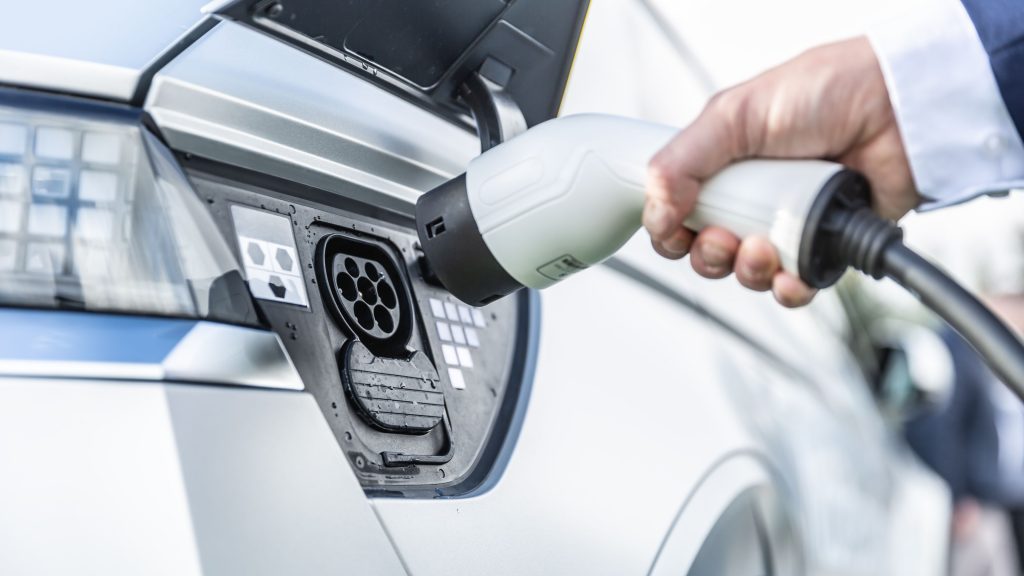The automotive industry is witnessing a revolutionary shift, with electric vehicles (EVs) increasingly becoming a mainstream choice for consumers. With concerns over environmental sustainability, fuel efficiency, and technological advancements, many drivers are now opting for electric cars rather than traditional gasoline-powered vehicles. While traditional cars have been the dominant mode of transportation for over a century, electric cars are emerging as a smarter, more eco-friendly alternative. This article delves into the benefits of electric cars compared to traditional cars, highlighting why electric vehicles are rapidly gaining traction as the superior option for the future.
In the following sections, we will explore the environmental benefits, cost savings, technological advantages, and overall convenience of owning an electric car. As the world moves towards more sustainable practices, electric cars represent a smart, forward-thinking choice for individuals and businesses alike.
Environmental Benefits: A Greener Future

One of the most significant advantages of electric cars is their positive impact on the environment. Traditional cars powered by internal combustion engines (ICE) contribute to air pollution, greenhouse gas emissions, and climate change. These vehicles emit harmful carbon dioxide (CO2) and other pollutants, which damage the environment and human health. In contrast, electric vehicles produce zero tailpipe emissions, making them an eco-friendly alternative.
Reduced Carbon Footprint
By driving an electric car, you can significantly reduce your carbon footprint. According to studies, electric cars can cut down on CO2 emissions by as much as 40% to 80%, depending on the energy source used to charge the vehicle. As the global electricity grid transitions to cleaner energy sources like solar and wind power, the environmental benefits of electric cars will continue to grow.
Lower Pollution Levels
Electric cars help improve air quality by reducing harmful emissions. In cities, where vehicle emissions are a primary source of air pollution, EVs can make a noticeable difference. The reduction of pollutants like nitrogen oxides (NOx) and particulate matter (PM) not only helps the environment but also contributes to better public health, especially in urban areas.
Cost Savings: Long-Term Financial Benefits
While electric cars typically come with a higher upfront cost than traditional vehicles, the long-term savings they offer make them a smarter financial choice. Electric vehicles have fewer moving parts, meaning there is less wear and tear compared to traditional cars. This translates to lower maintenance costs and fewer repairs over time.
Lower Fuel Costs
Electric cars are significantly more energy-efficient than gasoline-powered vehicles. The cost of charging an EV is considerably lower than refueling a traditional car with gasoline or diesel. According to the U.S. Department of Energy, the average cost per mile for electricity is about half of the cost per mile for gasoline. This can result in substantial savings over the life of the vehicle, especially if you drive frequently.
Reduced Maintenance Costs
Traditional cars require regular maintenance, such as oil changes, exhaust system repairs, and engine tune-ups. In contrast, electric cars have fewer components that need servicing. For example, EVs do not require oil changes, and they have fewer parts prone to wear and tear, such as the engine and transmission. This results in reduced maintenance costs and a lower total cost of ownership over time.
Government Incentives and Tax Breaks
Many governments around the world offer tax incentives, rebates, and subsidies to encourage the adoption of electric vehicles. These incentives can significantly reduce the initial purchase price of an electric car. Additionally, EV owners may be eligible for reduced registration fees, free charging stations, and other benefits that further enhance the financial appeal of electric vehicles.
Technological Advancements: Driving Innovation
Electric cars are at the forefront of automotive innovation, offering advanced features and cutting-edge technology that improve the driving experience. These vehicles are equipped with state-of-the-art technology, from self-driving capabilities to enhanced connectivity and smarter infotainment systems.
Autopilot and Driver Assistance Systems
Many electric vehicles are equipped with autonomous driving technology, which can assist with tasks like lane-keeping, adaptive cruise control, and parking assistance. This makes driving safer and more convenient, especially in congested urban environments or on long highway trips. Companies like Tesla have pioneered self-driving features in electric cars, and other automakers are following suit.
Smart Connectivity and Features
Electric vehicles come with advanced infotainment systems, offering features like smartphone integration, navigation, and voice-controlled commands. EVs also typically include software updates that can improve performance and add new features remotely, eliminating the need for service visits. As technology evolves, electric cars will continue to integrate even more innovative features that enhance convenience, safety, and overall driving experience.
Convenience: A Better Driving Experience

Electric vehicles offer a superior driving experience compared to traditional cars. From smoother acceleration to quieter operation, EVs provide a level of comfort and convenience that many drivers find appealing.
Quiet and Smooth Operation
One of the most noticeable differences between electric and traditional vehicles is the driving experience. Electric cars are much quieter than gasoline-powered vehicles, as they do not have an internal combustion engine. This creates a smoother, more serene driving experience, especially in urban environments. The absence of engine noise also reduces noise pollution, which contributes to a quieter, more peaceful atmosphere in cities.
Instant Torque and Smooth Acceleration
Electric cars provide instant torque, meaning they can accelerate more smoothly and quickly than traditional vehicles. This results in a responsive and engaging driving experience, particularly in stop-and-go traffic or while merging onto highways. EV drivers enjoy a more seamless and efficient driving experience without the need for shifting gears or waiting for an engine to reach optimal performance.
Charging Infrastructure: Easier Access and Growing Networks
As the demand for electric vehicles grows, so does the charging infrastructure. While earlier concerns about the availability of charging stations may have been valid, today’s electric car owners have access to an ever-expanding network of public and private charging stations.
Faster Charging and Longer Range
Electric vehicle manufacturers are continually improving charging speeds and battery capacities. Modern electric cars offer longer ranges on a single charge, with some models exceeding 300 miles. Additionally, advancements in fast-charging technology have made it possible to charge EV batteries to 80% in as little as 30 minutes, making long road trips more convenient.
Charging at Home
One of the biggest advantages of owning an electric car is the ability to charge it at home. By installing a Level 2 charging station in your garage or driveway, you can conveniently charge your car overnight, ensuring it’s ready for the next day. This eliminates the need for frequent trips to the gas station, saving time and making EVs a more convenient option for daily use.
The Future of Transportation: A Sustainable Choice
The automotive industry is rapidly transitioning toward sustainability, and electric vehicles are at the center of this transformation. Governments, automakers, and consumers are all playing a part in creating a greener, more sustainable future for transportation. As battery technology continues to improve and the availability of charging stations increases, electric cars will become an even more viable option for drivers.
Growing EV Market
The electric vehicle market is expected to continue expanding, with more automakers investing in electric vehicle development and production. Major manufacturers, including General Motors, Ford, and Volkswagen, have already committed to electrifying their fleets, signaling the future of transportation. As EV adoption increases, electric vehicles will become more affordable, accessible, and practical for everyday consumers.
A Cleaner, Greener Future
By choosing an electric car, you are not only saving money but also contributing to a cleaner, greener planet. The widespread adoption of electric vehicles is a crucial step in reducing greenhouse gas emissions, improving air quality, and combatting climate change. As more drivers make the switch to EVs, the automotive industry will continue to play a vital role in promoting environmental sustainability.
Conclusion
Electric cars offer a wide range of benefits over traditional gasoline-powered vehicles, from environmental sustainability to long-term cost savings and cutting-edge technology. As the world moves towards cleaner, greener transportation options, electric vehicles are becoming the smarter, more responsible choice for consumers. With advancements in charging infrastructure, longer battery ranges, and increasing affordability, the future of electric vehicles looks brighter than ever.

For anyone looking to reduce their carbon footprint, save on fuel and maintenance costs, and enjoy a more innovative driving experience, switching to an electric vehicle is a smart choice. As the global demand for EVs grows, it’s clear that electric cars are here to stay and will continue to shape the future of transportation.

Leave a Reply